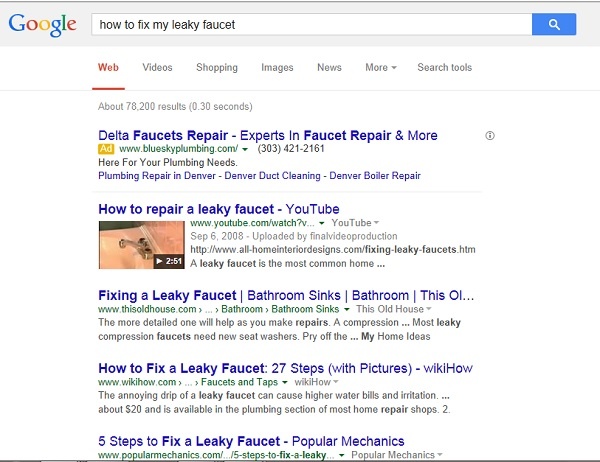Last fall Google rolled out another algorithm update called Hummingbird. And every time they make a change, website owners scramble to 'fix' their websites.
Keywords are dead! My website will disappear! The sky is falling!
Whoa now! Stop and think a minute. You've been providing quality content on your website, haven't you? If so, relax. Hummingbird is a good thing.
When Google changes their algorithm it's to improve the search results.
Previous changes to the algorithms helped weed out results that were nothing more than keyword-stuffed crap. Hummingbird takes it another step further. It tries to determine the searcher's intent from the context using conversational search.
According to Search Engine Land, "...Hummingbird is paying more attention to each word in a query, ensuring that the whole query — the whole sentence or conversation or meaning — is taken into account, rather than particular words. The goal is that pages matching the meaning do better, rather than pages matching just a few words."
For example, say you need to fix your leaky faucet. In the old days, you'd probably use search shorthand and type 'fix leaky faucet' which would get you lots of links to plumbing companies' websites.

If you typed out the entire question 'how to fix my leaky faucet' you would probably still get some links to plumbing websites, but you would also get some 'how to' articles. Have you ever noticed some search terms are highlighted in the results? Those are the terms the search engine actually used - 'fix' and 'faucet'.
With the Hummingbird algorithm, you might see a couple of plumbing company ads, but the organic results will be 'how to' articles. You will also see synonyms. Did you notice 'How to repair' instead of 'How to fix'?
Google's search engine continues to evolve.
People understand context. For example, you might start a conversation with a friend:
"Hey, I talked to Mary today."
"Really? What did she say?
We know that 'she' refers to Mary, but to the old search engines those were two separate and different sentences. It couldn't make the connection.
As Google's Hummingbird develops it will better understand words and their relationships. It's even starting to connect two queries which means it will know who 'she' is.
Do we need to change our SEO?
If you have original, high quality content, no.
However writing for users, rather than search engines, is more important than ever.
Here are some things to keep in mind:
- Use your key words, but also use synonyms. Remember both 'repair' and 'fix'?
- In addition to quality, make your content specific. Instead of writing about 'tomatoes', write about 'growing scrumptious tomatoes on an apartment balcony.'
- It's still important that your titles be clear and straightforward. Keep in mind the needs and intentions of your readers.
- Also keep in mind users are generally looking for in-depth content that satisfies a need, rather than the 'me too' content.
Feel better now? It's not such a scary thing. You can focus on your business and not worry about becoming an authority on SEO; just write quality content that your audience will love and Google will love you too. Promise.
You might also like:
- Learning more about how search works




